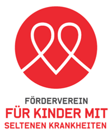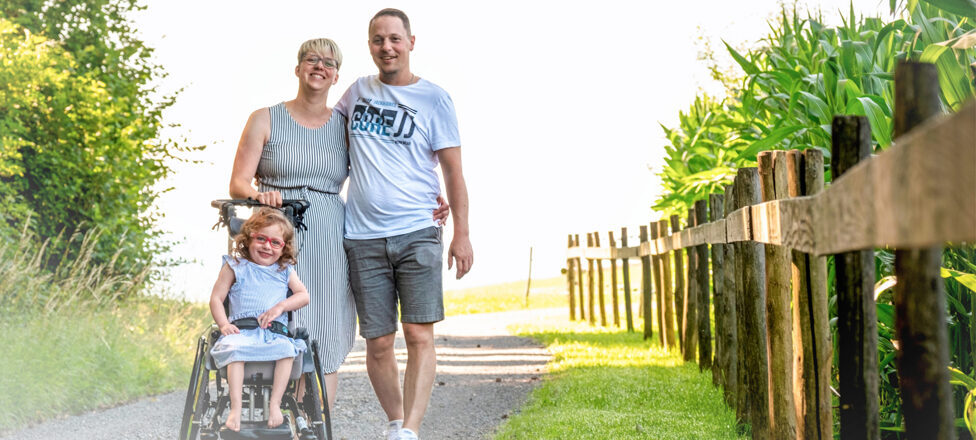In an emergency, it's important to do the right thing quickly while remaining calm.
No easy undertaking when it is your own child own child. In order to help him or her quickly, good preparation for the emergency and cooperation between parents and the professionals are central.
Important notes
Note 1: Creates an emergency plan
Note 2: Be prepared for an emergency
Emergency situations are often the order of the day for parents with sick children the order of the day. Making plans is virtually impossible, which can lead to stress stress. Therefore, always carry a pencil case with your child's diagnosis list, any emergency protocols and all medication dosages, and pass them on to your child's caregivers so that they are also prepared if you as parents are not on hand.
Note 3: Recognize an emergency, dial 144 (or 145 in case of poisoning) and share important information
An acute emergency is indicated when children do not show sufficient respiration (altered breathing), when circulatory failure is imminent (skin color pale/ grayish) or when children no longer react react appropriately to their environment. In such situations, 144 must be dialed must be dialed.
In addition, there are also imminent emergencies, for example after an accident, if children have swallowed dangerous objects (including a Button battery or several magnets) or after poisoning. In the latter case it is important to call 145 (Tox Info Suisse) to find out what measures are required Measures are necessary.
On the phone, the following information should be given in particular: Name, address, type of emergency, age and underlying disease (if present) of the child.
Note 4: Collaboration with healthcare professionals helps keep you calm
In order to help the child as quickly as possible, you parents should quickly share all important information with the specialists. What is the underlying disease of your child? What medications is he or she taking? Is there an emergency plan for acute illnesses? Work together with the professionals and let yourself be involved in the collaboration.
Note 5: Potentially critically ill children will be prioritized for emergency treatment
All children are triaged/transferred Arrived at emergency triaged/transferred by a nurse. This means that potentially seriously ill children are always given priority. A Staying in an emergency department still requires patience. One help is, medical records with you, as well as your child's medications, as it can be very difficult to organize it can be very difficult to organize rare medications on an emergency basis.
Important questions
What are rare disease helplines and how do I reach them?
Rare disease helplines are usually offered by hospitals and are numbers that can be dialed free of charge can be dialed free of charge. The staff have many years of Experience in the field of rare diseases and offer advice on topics of Topics that are of particular concern to those affected, often beyond medical medical questions. Patients, relatives as well as health Health professionals or insurance companies can call the number (usually there is also an e-mail address). In an acute emergency the 144 is the right number to call.
The helpline is not a consultation telephone. The staff cannot make diagnoses, prescribe therapies or offer psychological counseling. The Helpline staff are also bound by the duty of confidentiality. Any data provided will be treated confidentially.
Interesting links
Helpline Rare Diseases: 031 664 07 77 (Inselspital Bern)
Helpline Rare Diseases: 044 266 35 35 (Kantosspital St. Gallen)
Rare Diseases Helpline: 061 704 10 40 (University Children's Hospital beider-Basel)
Rare Diseases Helpline: 044 266 35 35 (University Children's Hospital of Zurich)
Where can I find other important information about hospitalization and emergencies?
Child+Hospital Association
The Kind+Spital association provides helpful tips and advocates for better conditions of stay for children in hospital (e.g. rooming-in for parents, extension of visiting hours, child-friendly care and supervision, comprehensive information and involvement of parents and the child in everyday care).
Interesting links

